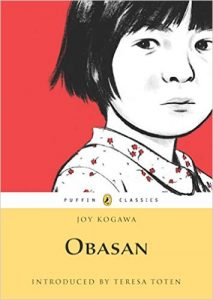
Coming to UBC was my first time on the continent of America. Vancouver is indeed well-known for its tolerant and respectful position toward diversity. It was longly considered a open minded country who stands up for the minorities. I was aware about the hard living conditions of the First Nation on this land but new policies are establishing to fight discrimination. However I did not thought that they were still many untold stories. I bring the knowledges from my sociology class and the reading of Obasan to understand the history of Japanese-Canadian internment. What stung me the most was the fact that I never heard this dark side of Canadian history. It is very surprising since I was in a French high school who was really dedicated to teach different perspectives of World War II in history class. This leads me to a previous reflection on how memory was selective in the graphic novel of Persepolis. In the same order of ideas, Obasan also treat the dilemma of remembering and forgetting through the different reaction of the characters of the story toward the past. Some people believe it is crucial in the growth of society that we keep painful memories while others like Uncle and Obasan who think that it is useless to bring up the past.
After discussing this topic with my classmates in ASTU, I came to realize that our ability to forget can also serve beneficial purpose. As my position from the start was remembering is the best way to understand the past and avoid the production of the same mistakes, my bias perspective was put into questions. Because we live in the society that is obsessed with preserving memory through photos, archives, books and the fear of oblivion, we tend to see that forgetting is a bad thing. Despite the fact that Obasan do not provide a clear answer on which one is the best between forgetting and remembering, it provides arguments for both side. Forgetting allows us to move on past trauma and memories that hold us back from the development of one’s self. It also allows some space for the memory to more essential informations and it keep our mind sane.
Furthermore, our desire to remember everything can be harmful as it can prevent a clear understanding of the past. Like Naomi, by searching to much for the truth we may loose ourselves in the quest and find ourselves lost from all our landmarks. Only when we decide to accept the past and take a step back to understand it that we can have the right state of mind discover the truth. Because the real importance does not lies in the truth itself but in what we learn during the process of finding it. In the novel, Naomi does not describe concretely the mutilation of her mother but instead she focuses the poetic side of the story and what lesson she can extract from it.
In the end, we must remember to forget.